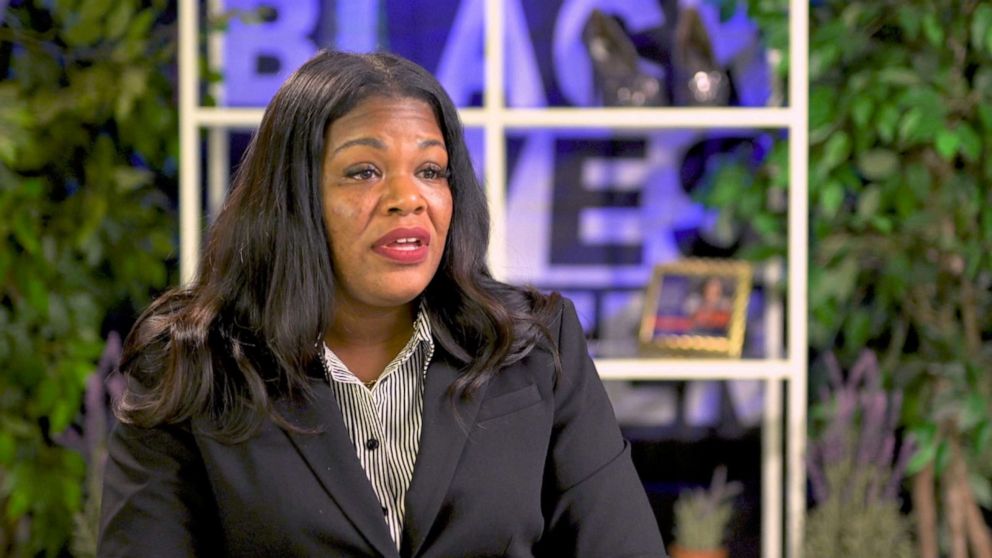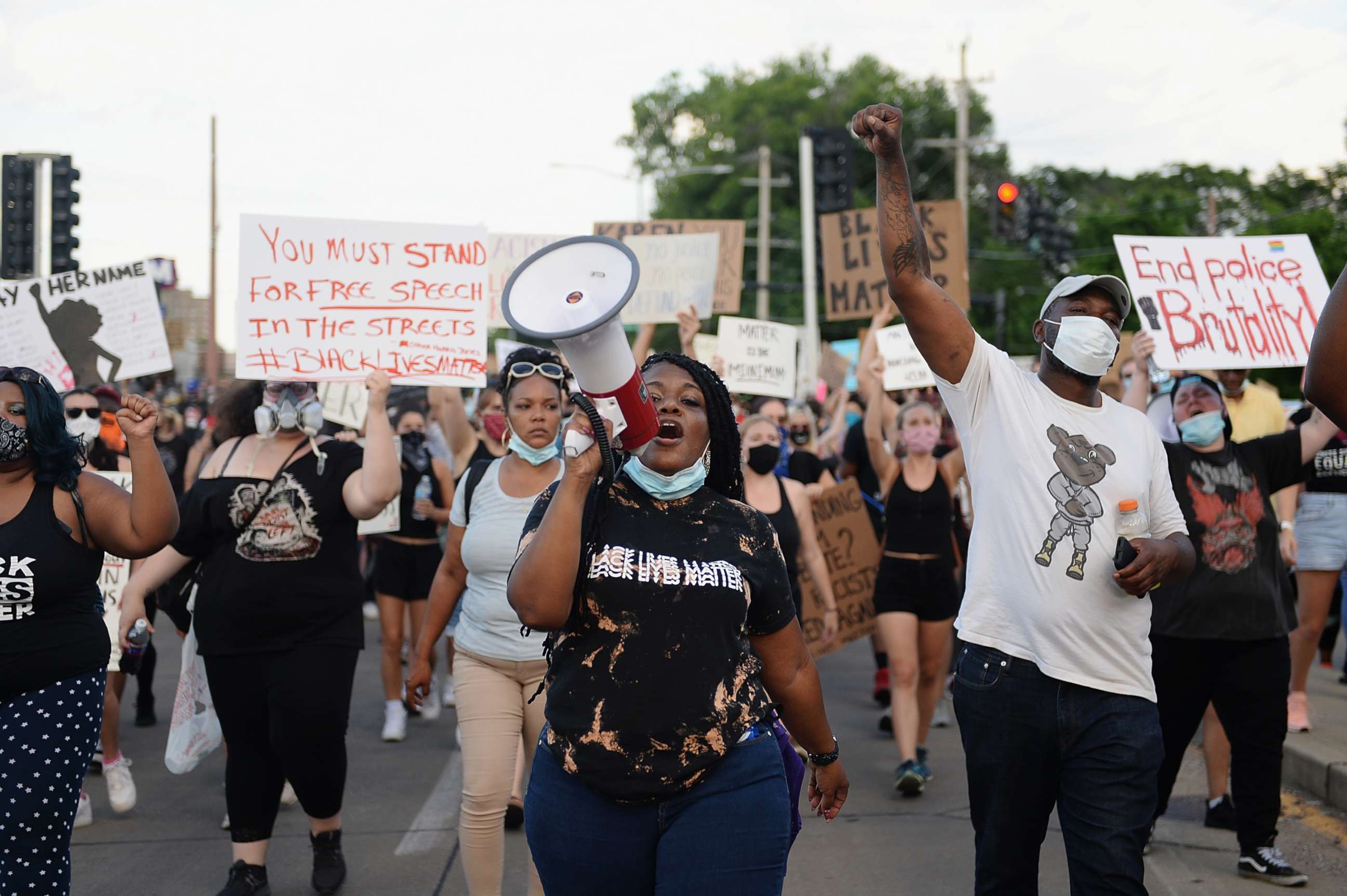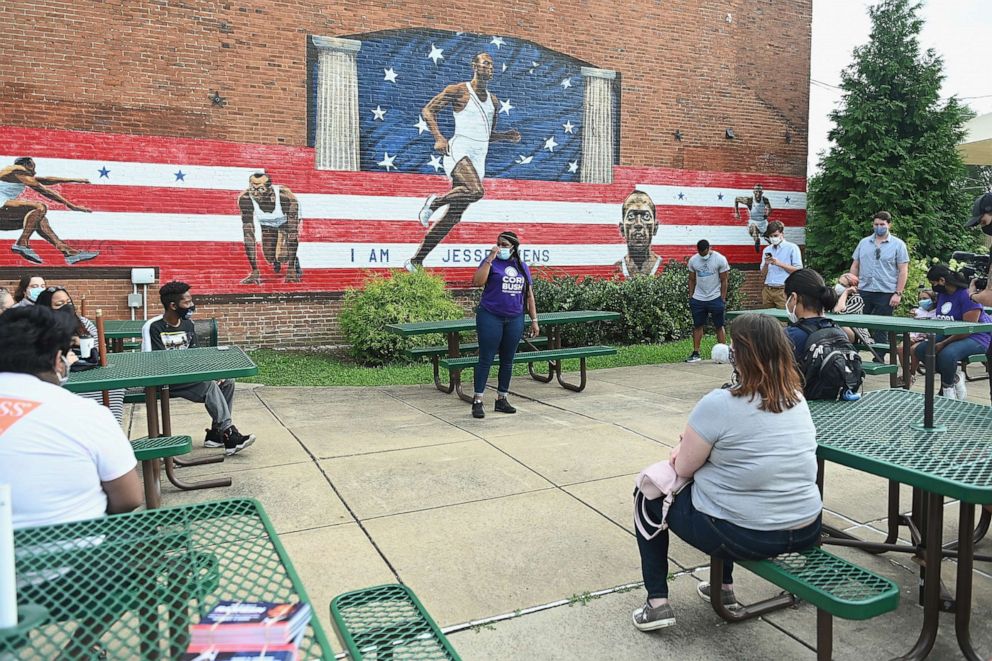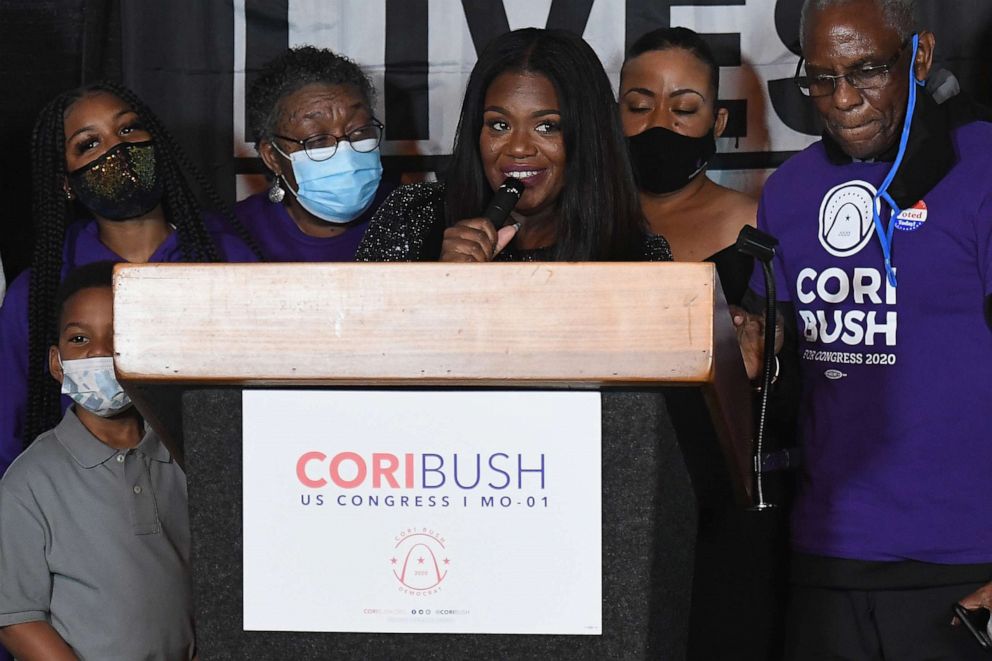Congresswoman-elect Cori Bush reflects on her Black Lives Matter roots and why she ran for Congress
The Missouri native never saw herself as an activist. Then, Michael Brown died.
Representative-elect Cori Bush did not envision herself as an activist -- let alone the first Black woman to represent Missouri in Congress -- when she took to the streets in 2014 to protest the shooting death of Michael Brown.
Brown, a Black 18-year-old, was shot and killed by Ferguson police officer Darren Wilson, who is white, on Aug. 9, 2014. The incident sparked nationwide protests and marked a national recognition of the Black Lives Matter movement.
"I didn't set out to become an activist. That wasn't even a thing back then," Bush, a former nurse and pastor who lived six minutes away from where Brown died, told ABC News' "The Year: 2020." "I was watching my community in rage. I was watching my community just look a way and feel a way that I was unfamiliar with."
Six years later, Bush unseated longtime incumbent William Lacy Clay Jr. in the Democratic primaries to represent Missouri's 1st Congressional District, which includes Ferguson. She will be sworn in Jan. 3.

During an interview with ABC News, Bush reflected on how the Black Lives Matter movement has grown and why she decided to run for Congress.
In 2014, she said, the protesters weren't seeking to build a movement, but rather, get justice.
"We met out there in a situation of trauma, and we were just out there seeking justice," she said. "We weren't seeking a name. We weren't seeking to build a movement. We weren't seeking likes on social media. We were out there to get justice for Michael Brown Jr. and his family, and then not only that, [but also] to see how we could stop what's happening in this country as it relates to policing and Black bodies."
Watch "The Year" on Tuesday, Dec. 29, at 9 p.m. ET on ABC
Wilson resigned from the Ferguson Police Department in November 2014, the same month a grand jury chose not to indict him for Brown's death. In March 2015, the U.S. Justice Department also declined to prosecute him, citing evidence and witnesses supporting Wilson's claims that Brown attacked him.
Bush lamented the number of Black people who've died at the hands of police since Brown was killed, including Breonna Taylor and George Floyd this year. Nevertheless, she acknowledged the impact of their deaths on the Black Lives Matter movement.
"Seeing that video of that police officer, Derek Chauvin, with his knee on the neck of George Floyd out there on the ground in public, in front of all those people with other officers around and that man begging for his life, and his life still taken from him in that moment," she said, "that shook the world, and rightfully so."

With corporations endorsing Black Lives Matter in advertisements and the words being printed on clothing, however, Bush said the movement is "all over the place," as if it were just a "fad."
"But what we need to do now is not allow it to be a fad," she said. "We need it to be fact because when it's fact, we get to live."
Black Lives Matter today is different than it was in 2014, because unlike previous years, people from diverse backgrounds seem to have committed to a sustained movement, Bush said.
"What we saw this time here in 2020, we saw young folks out. The number of young folks that were out on the street from every walk of life, every color, every background, every religious belief, or no belief at all. All of us were out there together and fierce -- fighting," she said. "That's what we needed to see, and hopefully the world woke up. We'll see."
Protesting is just one tool for people to create the change they want to see, Bush said, pointing out that electing people who will create that change into office is another.
"We were giving up our time and our energy and our hearts out there, but what we were missing was people who were in positions of power who were listening to us, who were writing bills and who were taking what we were saying and using that to inform legislation," she said.

Bush was one of at least 115 women of color to run for Congress this year.
But it wasn't an easy road. Bush ran unsuccessfully for the Senate in 2016 and the House in 2018 before her victory this year. She claims she was sexually assaulted three weeks after her loss in the 2016 primaries, and she has spoken about it onTwitter and in Elle magazine. Nevertheless, she said, she still decided to run for office.
"I was violently sexually assaulted and went through a really, really, really tough spot," she said. Four months after that, someone asked me to run for Congress for the House seat, and all I could think about was like, 'Why would I do this? I'm still trying to heal from what I went through. I can't do this.'"
But she said that when she thought about what she'd endured, as well as the potential danger her children faced every day, she decided to run.
"I've been abused by the police. I've gone through so many things. I've been harassed. I've been heavily surveilled. ... And now, to take that voice and that experience and walk that into Congress, that's where that other change is going to come from," she said. "That's how we turn it from being a fad into being actual change in our communities."

Now that she's headed to the halls of Congress, Bush said her goal is to "make sure that Black lives are saved" by fighting for the resources needed to change policing, health care, wages, housing and the environment for the better.
"I don't care if people don't like it. I don't care if they call me names," she said. "This one right here is going to bring some change that people who look like me can actually feel."




